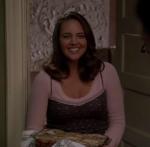 frookenhauer, on Oct 28 2008, 07:09 AM, said:
frookenhauer, on Oct 28 2008, 07:09 AM, said:
I'm not sure he was defending the analogy, Cause. Just a way of mocking it and thereby reducing its efficacy. The idea behind the analogy was to basically cut away all the philosophy, religion, omnipotence, etc and frame the flood for what it is. Gem, cleverly, used previous 'points' to sidestep the question, but murder is what it was.
 Cold Iron, on Oct 27 2008, 06:03 AM, said:
Cold Iron, on Oct 27 2008, 06:03 AM, said:
Who knows what could have happened to them had they continued on their previous paths?
Are you talking about the dead, or the wives? I must admit to some confusion...
I wasn't mocking it, I was extending it. I find it a little absurd when atheists claim on the one hand that god doesn't exist but on the other that he commits murder.
The children died, it happened, that is an observable fact. Saying that god killed them is something different, it is synonymous with the statement that they died, because god does everything, or at least causes everything to be as the creator. Sure there is a contradiction here with free will but this is again beside the point. I'll try to put it simply:
God killed my son = god took my son = my son died
With this in mind, my extention of the analogy meant simply that things happen (god does things, god causes things to be, god moves in mysterious ways, fate, chance, providence, cause and effect, existance, we are here, things happen). The original analogy was obviously equating godefroy to god. But "god did it" and "it was an accident" are the same thing. So the kids died. It's a tragedy. We don't know why it happened. But it did, it was an event and like all other events it caused the world to be a certain way, and certain things changed due to this event, they might be good things (like the wives giving up their bad habits), or they might not, the point is you don't know and you can't say. You might assume that the children did not want to die, but dying at that time might have truely been the best thing for them. You can't know. We can't say.
In the end it is a choice to trust that
everything that happens is the
best thing that can happen. Because of god. Just because you can think of outcomes you would have preferred, you can never know if they wouldn't have ended up causing something worse (donnie darko, butterfly effect etc.). Whatever you believe god to be, belief in it is fundamentally trust that what is is right, and it is right because it is, and what isn't is wrong, and it is wrong because it isn't. And you are exactly how you should be. And you are right, and you can thus love yourself.
"But what about murderers!?" I hear.
They do not love themselves. They do not trust that what is is right. They do not trust god.
"But then god caused that to be! He made the murderer, so he made him what he is!"
And we do not know and can not say why, but we can trust that it had to be, and it is right, and it is as it should be, because it is as it is, and it is good.
"Now you're just talking shit. My genital herpes are not fucking good!"
Perhaps there is some good in them. Maybe if you didn't contract herpes from the first skank, you'd now have syphilis from the second.
"Fine, what about genicide? How can that be good!?"
I don't know. But I trust.
"You're a fucking loony. Look, you're even having a conversation with yourself!"
And you will never love yourself.
"Why?"
Because if what is isn't perfect, then you will always think there is something about you that is wrong, that should be better, that you are inadequate and that you would be happier if you were better.
"Hey I'm fine, I'm not a fucking emo."
Just think about it. Would trusting god help you love yourself more?
 frookenhauer, on Oct 22 2008, 11:10 PM, said:
frookenhauer, on Oct 22 2008, 11:10 PM, said: frookenhauer, on Oct 22 2008, 11:10 PM, said:
frookenhauer, on Oct 22 2008, 11:10 PM, said: frookenhauer, on Oct 22 2008, 11:10 PM, said:
frookenhauer, on Oct 22 2008, 11:10 PM, said:
 Help
Help
















